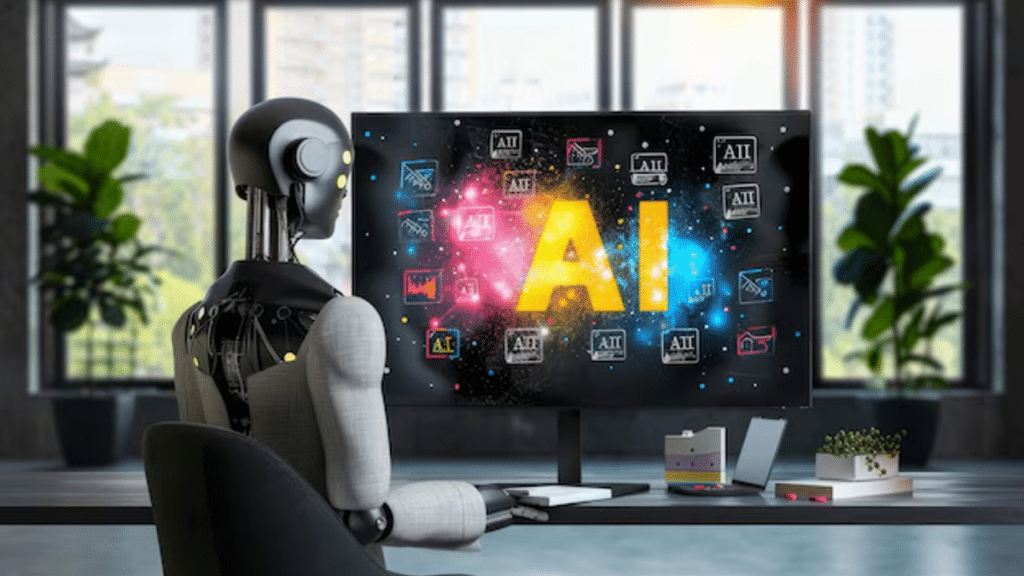In the fast-paced world of digital marketing, Artificial Intelligence (AI) has become a game-changer, revolutionizing the way brands interact with consumers. AI’s ability to analyze data, predict trends, and personalize user experiences is pushing digital marketing strategies into new and exciting directions. As AI technologies advance, marketers continuously adapt their approaches to keep pace with the evolving landscape.
In this article, we will explore how digital marketing strategies are evolving with AI and the implications for businesses looking to stay ahead.
The Role of AI in Modern Digital Marketing
AI is no longer just a futuristic concept; it has become a powerful tool for digital marketers. With the ability to process and analyze vast amounts of data in real time, AI offers marketers unprecedented insights into consumer behavior, preferences, and trends, and also provides some online games like situs slot gacor. From automating routine tasks to enhancing personalization, AI is transforming every aspect of digital marketing.
AI-Powered Data Analytics
One of the key advantages of AI in digital marketing is its ability to analyze data quickly and accurately. Traditional methods of data analysis often involve manual processing, which can be time-consuming and prone to errors. AI, on the other hand, can sift through large datasets almost instantly, identifying patterns, predicting customer preferences, and providing actionable insights.
For example, AI-powered tools can analyze customer interactions on websites and social media platforms, providing insights into which products or services are most popular, when customers are most active, and how they prefer to engage with brands. These insights allow marketers to make data-driven decisions, optimizing campaigns for maximum impact.
Personalization at Scale
Personalization has always been a key aspect of effective digital marketing, but AI takes it to a whole new level. AI algorithms can analyze individual customer behavior and preferences to deliver highly personalized content, offers, and recommendations. This level of personalization was once only possible through manual efforts, but AI allows brands to scale this personalization across thousands, or even millions, of customers who play games such as slot.
AI-powered chatbots, for instance, can provide personalized customer service in real-time, responding to queries based on the individual’s past interactions with the brand. Additionally, recommendation engines, such as those used by e-commerce platforms, leverage AI to suggest products that are tailored to the specific preferences of each user, increasing conversion rates and customer satisfaction.
Automation and Efficiency
Automation is another area where AI is making a significant impact. Tasks that were once labor-intensive, such as email marketing, social media posting, and ad management, can now be automated with AI. This allows marketers to focus on strategy and creative thinking, while AI handles the execution.
For instance, AI-powered tools like Google Ads and Facebook’s advertising platform can automatically adjust bids, allocate budgets, and target the most relevant audiences based on real-time data analysis. This leads to more efficient use of marketing budgets, ensuring that ads reach the right people at the right time.
AI’s Impact on SEO and Content Marketing
Search engine optimization (SEO) and content marketing are also evolving rapidly in the face of AI. With search engines like Google increasingly using AI to rank websites, digital marketers must adapt their strategies to remain competitive.
AI and Search Algorithms
Google’s AI-driven algorithms, such as RankBrain and BERT, are becoming more sophisticated in understanding user intent and delivering more accurate search results. This shift means that traditional SEO practices, such as keyword stuffing, are no longer as effective. Instead, marketers need to focus on creating high-quality, relevant content that meets the needs of their audience.
AI can also assist in optimizing content for SEO. AI-powered tools can analyze search trends, identify high-performing keywords, and suggest content topics that are likely to resonate with the target audience. This not only helps in creating more engaging content but also improves search rankings.
AI-Generated Content
Another exciting development is AI-generated content. While human creativity is still essential, AI tools like GPT (Generative Pre-trained Transformer) are increasingly being used to assist with content creation. These tools can generate blog posts, product descriptions, social media captions, and even ad copy based on predefined criteria.
AI-generated content can help marketers produce large volumes of content quickly and efficiently.
However, it’s important to note that while AI can generate text, it lacks the nuanced understanding and emotional depth of human writers. As such, a balance between AI-driven content and human creativity is crucial for maintaining authenticity and quality.
The Future of AI in Digital Marketing
As AI continues to evolve, its role in digital marketing will only expand. Businesses that embrace AI will be able to stay ahead of the competition by leveraging its capabilities to drive better customer engagement, improve campaign performance, and increase overall efficiency.
Predictive Analytics for Smarter Marketing
One of the most promising areas for the future of AI in digital marketing is predictive analytics. By analyzing historical data, AI can predict future consumer behaviors and trends, allowing marketers to make proactive decisions.
AI-Driven Customer Experiences
In the future, AI will continue to enhance the overall customer experience. From personalized shopping experiences to AI-powered virtual assistants, customers will expect seamless, AI-driven interactions with brands. Companies that prioritize AI in their digital marketing strategies will be better equipped to meet these expectations and build lasting relationships with their customers.
Conclusion
AI is reshaping the landscape of digital marketing in ways that were unimaginable just a few years ago. From advanced data analytics to personalization at scale and automation, AI is helping marketers create more effective, efficient, and personalized campaigns. As AI continues to evolve, businesses that integrate these technologies into their digital marketing strategies will be well-positioned to succeed in an increasingly competitive market. The future of digital marketing is undoubtedly AI-driven, and those who embrace it will lead the charge into this new era of innovation and customer engagement.

